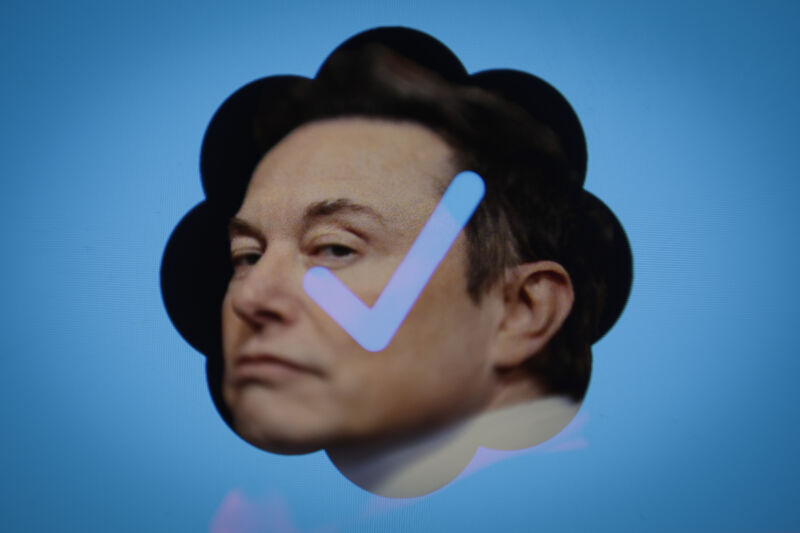U bent hier
Feed-aggregator
Staatsarchiv Freiburg (CH): Tuch von ca. 1250 umhüllte Urkunden
“Am 18. März 2024 kehrte ein seltenes Objekt ins Staatsarchiv zurück. An jenem Montag reiste ein Kollege nach Riggisberg zur Abegg-Stiftung, um ein Tuch abzuholen, das als Schutzhülle für Dokumente aus dem Bestand der Abtei Hauterive gedient hatte, der seit Mitte des 19. Jahrhunderts im Archiv aufbewahrt wird. Der Historiker Hubert de Vevey war in den Besitz dieses Tuchs gelangt, das ursprünglich eine Pergamentkopie und vier Papierkopien der Gründungsurkunde der Abtei umhüllte.”
Hörbares
Aktuelle Podcasts zu archäologischen und historischen Themen sammelt:
The DiskMantler violently shakes hard drives for better rare-earth recovery

Enlarge / From magnets we came, to magnets we return. (credit: Garner Products)
There is the mental image that most people have of electronics recycling, and then there is the reality, which is shredding.
Less than 20 percent of e-waste even makes it to recycling. That which does is, if not acquired through IT asset disposition (ITAD) or spotted by a worker who sees some value, heads into the shredder for raw metals extraction. If you've ever toured an electronics recycling facility, you can see for yourself how much of your stuff eventually gets chewed into little bits, whether due to design, to unprofitable reuse markets, or sheer volume concerns.
Traditional hard drives have some valuable things inside them—case, cover, circuit boards, drive assemblies, actuators, and rare-earth magnets—but only if they avoid the gnashing teeth. That's where the DiskMantler comes in. Garner Products, a data elimination firm, has a machine that it claims can process 500 hard drives (the HDD kind) per day in a way that leaves a drive separated into those useful components. And the DiskMantler does this by shaking the thing to death (video).
SpaceX’s most-flown reusable rocket will go for its 20th launch tonight

Enlarge / File photo of a Falcon 9 rocket rolling out of its hangar at Cape Canaveral Space Force Station, Florida. (credit: SpaceX)
For the first time, SpaceX will launch one of its reusable Falcon 9 boosters for a 20th time Friday night on a flight to deliver 23 more Starlink Internet satellites to orbit.
This milestone mission is scheduled to lift off at 9:22 pm EDT Friday (01:22 UTC Saturday) from Space Launch Complex 40 (SLC-40) at Cape Canaveral Space Force Station, Florida. Forecasters from the US Space Force predict "excellent" weather for the primetime launch.
Falcon 9 will blaze a familiar trail into space, following the same profile as dozens of past Starlink missions.
Google kills “One” VPN service, says “people simply weren’t using it”

Enlarge (credit: Aurich Lawson)
Another day, another dead Google product. The Google One VPN service we complained about last week is headed to the chopping block. Google's support documents haven't been updated yet, but Android Authority reported on an email going out to Google One users informing them of the shutdown. 9to5Google also got confirmation of the shutdown from Google.
The Google One VPN launched in 2020 as a bonus feature for paying Google One subscribers. Google One is Google's cloud storage subscription plan that allows users to buy extra storage for Gmail, Drive, and Google Photos. In 2020, the plan was exclusive to the expensive 2TB tier for $10 a month, but later, it was brought down to all Google One tiers, including the entry-level $2-per-month option.
By our count, Google has three VPN products, though "products" might be too strong a word since they are all essentially the same thing—VPN market segments? There's the general Google One VPN for Android, iOS, Windows, and Mac—this is the one that's dying. There's also the "Pixel VPN by Google One," which came with Pixel phones (the "Google One" branding here makes no sense since you didn't have to subscribe to Google One) and the Google Fi VPN that's exclusive to Google Fi Android and iOS customers.
Rechtsstreit um Da-Vinci-Puzzle
Nun berichten auch andere deutsche Medien. Siehe den Nachtrag zu https://archivalia.hypotheses.org/198498 mit PDF der Entscheidung.
“Das Gericht stellte klar, dass ein italienisches Gesetz nur in dem Staatsgebiet Italiens Gültigkeit besitzt und dem Staat Italien für eine Geltung außerhalb seines Staatsgebietes die Regelungsbefugnis fehlt” (Börsenblatt).
“Ban Chinese electric vehicles now,” demands US senator

Enlarge / BYD electric cars stand at a BYD dealership on April 05, 2024, in Berlin, Germany. BYD, which stands for Build Your Dreams, is a Chinese manufacturer that went from making solar panels to electric cars. The company is seeking to gain a foothold in the German auto market. (credit: Sean Gallup/Getty Images)
Influential US Senator Sherrod Brown (D–Ohio) has called on US President Joe Biden to ban electric vehicles from Chinese brands. Brown calls Chinese EVs "an existential threat" to the US automotive industry and says that allowing imports of cheap EVs from Chinese brands "is inconsistent with a pro-worker industrial policy."
Brown's letter to the president is the most recent to sound alarms about the threat of heavily subsidized Chinese EVs moving into established markets. Brands like BYD and MG have been on sale in the European Union for some years now, and last October, the EU launched an anti-subsidy investigation into whether the Chinese government is giving Chinese brands an unfair advantage.
The EU probe won't wrap until November, but another report published this week found that government subsidies for green technology companies are prevalent in China. BYD, which now sells more EVs than Tesla, has benefited from almost $4 billion (3.7 billion euro) in direct help from the Chinese government in 2022, according to a study by the Kiel Institute.
Nintendo targets Switch-emulation chat servers, decryption tools with DMCA

Enlarge / Is a name like "Suyu" ironic enough to avoid facing a lawsuit? (credit: Suyu)
Nintendo continues to use DMCA requests to halt projects it says aid in the piracy of Switch content. Discord has shut down the discussion servers associated with two prominent Yuzu forks—Suyu and Sudachi—while GitHub has removed a couple of projects related to the decryption of Switch software for use with emulators or hacked consoles.
The takedowns are the latest aftershocks from Nintendo's federal lawsuit against Switch emulator Yuzu, which led to a $2.4 million settlement weeks later. Yuzu voluntarily shut down its GitHub page and Discord server as part of that settlement, though archived discussions from Discord are still accessible.
That settlement includes a section prohibiting the makers of Yuzu from "acting in active concert and participation" with third parties in the distribution or promotion of Yuzu or any clones that make use of its code. But there's no evidence that anyone enjoined by that settlement is actively working with Suyu or Sudachi on their projects.
Elon Musk’s X to stop allowing users to hide their blue checks

Enlarge (credit: NurPhoto / Contributor | NurPhoto)
X will soon stop allowing users to hide their blue checkmarks, and some users are not happy.
Previously, a blue tick on Twitter was a mark of a notable account, providing some assurance to followers of the account's authenticity. But then Elon Musk decided to start charging for the blue tick instead, and mayhem ensued as a wave of imposter accounts began jokingly posing as brands.
After that, paying for a blue checkmark began to attract derision, as non-paying users passed around a meme under blue-checked posts, saying, "This MF paid for Twitter." To help spare paid subscribers this embarrassment, X began allowing users to hide their blue check last August, turning "hide your checkmark" into a feature of paid subscriptions.
Two philosophers win Guggenheim Fellowships
Nachhaltigkeit schon 1713
Forgeries, Fakes, and Counterfeits in Print Culture
Forgeries, Fakes, and Counterfeits in Print Culture: Texts, Editions, Copies 10-11 May 2024, Oakeshott Room, Lincoln College, Oxford Convenors:Geri Della Rocca de Candal and Paolo Sachet
PROGRAMME
Friday 10 May, Morning9.30amRegistrationand Coffee10.00am Opening Remarks10.15am -12pm Texts I: False TextsGeorgijs Dunajevs(Würzburg–National Library of Latvia)‘Faux Completeness over Textual Authenticity: A Case Study of the Taiping guangji’Avni Chag(VU Amsterdam)‘Writing in the Name of God: Implications of Pseudepigrapha in the Śikṣāpatrī’Andrea Brondino(Warwick)‘From Fiction to Fake, and Back Again: Reframing the Protocols of Zionin The Prague Cemeteryof Umberto Eco’Enrico Emanuele Prodi(Cagliari)‘The Artemidorus Papyrus between the Ivory Tower and the Public Arena’
Friday 10 May, Afternoon1.30pm -3.15pm Editions I: Fake ImprintsPaolo Sachet(IHR, Geneva)‘“Ad Catacumbas”:Rome and its Historical Sites as Fake Imprints in Protestant Publications’Hadrien Dami(IHR, Geneva)‘From Pierre Aubert to Pierre Marteau: Geneva as Fake Imprint and Hub for Fake Imprints in the Seventeenth Century’Jacqueline Hylkema(Leiden)‘The Politics of Printing Forgery in the Dutch Republic, from the States Bible to Spinoza’Pierre Delseardt(Antwerp)‘Paratext and Persuasion: Fake Imprints as Political Statements in the Habsburg Low Countries (1781–1793)’3.15pmCoffee Break3.45pm -5.30pmCopies I: Forgers and ForgeriesGeri Della Rocca de Candal(Oxford)‘Untangling aCase of Double Forgery: A Unique Copy of the 1499 Hypnerotomachia Poliphili’Katharina Mähler(Herzog August Bibliothek)‘On Closer Inspection: Suspicious Details of Historic Bookbindings’Paul Needham(Princeton)‘The Rome Editions of the Columbus Letter 1493: Collecting, Thieving, and Forging’Nick Wilding(Georgia State University)‘Forging Print and Provenance: Deception and Detection in the Case of Galileo’
Saturday 11 May, Morning9.30amCoffee10.15am -12pm Texts II: False AuthorshipPhillip Haberken(Boston University)‘The Challenge of Verisimilitude and the “True Likeness” of Jan Husin the German Reformation’Marco Spreafico(Warburg Institute)‘Un autre est moi: Faking and Forging Self-Translations in Early Modern Italy and France’Giovanni Spalloni(CNR)‘Lettere agli eretici: A Textual Forgery in the Turmoil of 1977’Anthony Grafton(Princeton)‘Joseph Scaliger and the Case of the Doctor’s Diploma’Saturday 11 May, Afternoon1.30pm -3.15pmEditions II: Pirating and WorkaroundsEster Camilla Peric(Scuola Superiore Meridionale)‘Aldine Counterfeits: Reassessing the Lyon and Italian Imitations’John Bidwell(Morgan Library & Museum)‘Authorized Editions: Some Manuscript and Printed Authentication Statements’François DupuigrenetDesroussilles(Independent)‘Counterfeiting Jansenist Bibles during the Reign of Louis XIV: The Brussels-Paris Connection’Pritha Mukherjee (Reading)‘Re-Evaluating Book Piracy and its Market in India’3.15pmCoffee Break
IFLA’s Open Access vocabulary
https://repository.ifla.org/bitstream/123456789/3272/1/Open%20Access%20Vocabulary%20Feb2024%20v2.pdf
Permalink: https://repository.ifla.org/handle/123456789/3272
TSMC’s $65 billion bet still leaves US missing piece of chip puzzle

Enlarge / President Biden speaking at the official opening of TSMC’s first Arizona fabrication plant in December 2022. The Taiwanese chipmaker plans to start manufacturing 2-nanometer chips in the US in 2028. (credit: Caitlin O’Hara/Bloomberg via Getty)
Taiwan Semiconductor Manufacturing Company’s decision to bring its latest technology to America is a big step forward for US President Joe Biden’s quest for security in the vital tech supply chain—but still leaves Washington short of being able to completely produce the most complex chips in the US.
The world’s biggest chipmaker by sales must also pull off an intricate balancing act as it steps up its US presence, satisfying customers such as Nvidia without damaging its highly profitable business model, which has underpinned the development of the global semiconductor industry for more than 30 years.
TSMC’s planned $65 billion of investments in Arizona are part of a construction race in the US that involves other global chipmakers such as Samsung and Intel, which are also taking big subsidies from Washington.







































































































![Reference manager - [Onderhoud aantekeningen]](https://www.labyrinth.rienkjonker.nl/sites/default/files/styles/medium/public/Reference%20manager%20v3%20-%20%5BOnderhoud%20aantekeningen%5D%2014-2-2010%20102617_0.jpg?itok=OJkkWhxY)
![Reference manager - [Onderhoud aantekeningen]](https://www.labyrinth.rienkjonker.nl/sites/default/files/styles/medium/public/Reference%20manager%20v3%20-%20%5BOnderhoud%20aantekeningen%5D%2014-2-2010%20102628.jpg?itok=CUvhRRr7)
![Reference manager - [Onderhoud bronnen] - Opnemen en onderhouden](https://www.labyrinth.rienkjonker.nl/sites/default/files/styles/medium/public/Reference%20manager%20v3%20-%20%5BOnderhoud%20bronnen%5D%2014-2-2010%20102418.jpg?itok=d7rnOhhK)
![Reference manager - [Onderhoud bronnen]](https://www.labyrinth.rienkjonker.nl/sites/default/files/styles/medium/public/Reference%20manager%20v3%20-%20%5BOnderhoud%20bronnen%5D%2014-2-2010%20102433.jpg?itok=CgS8R6cS)
![Reference manager - [Onderhoud bronnen]](https://www.labyrinth.rienkjonker.nl/sites/default/files/styles/medium/public/Reference%20manager%20v3%20-%20%5BOnderhoud%20bronnen%5D%2014-2-2010%20102445_0.jpg?itok=4oJ07yFZ)
![Reference manager - [Onderhoud bronnen]](https://www.labyrinth.rienkjonker.nl/sites/default/files/styles/medium/public/Reference%20manager%20v3%20-%20%5BOnderhoud%20bronnen%5D%2014-2-2010%20102500.jpg?itok=ExHJRjAO)
![Reference manager - [Onderhoud bronnen]](https://www.labyrinth.rienkjonker.nl/sites/default/files/styles/medium/public/Reference%20manager%20v3%20-%20%5BOnderhoud%20bronnen%5D%2014-2-2010%20102524.jpg?itok=IeHaYl_M)
![Reference manager - [Onderhoud bronnen]](https://www.labyrinth.rienkjonker.nl/sites/default/files/styles/medium/public/Reference%20manager%20v3%20-%20%5BOnderhoud%20bronnen%5D%2014-2-2010%20102534.jpg?itok=cdKP4u3I)
![Reference manager - [Onderhoud thema's en rubrieken]](https://www.labyrinth.rienkjonker.nl/sites/default/files/styles/medium/public/Reference%20manager%20v3%20-%20%5BOnderhoud%20themas%20en%20rubrieken%5D%2020-9-2009%20185626.jpg?itok=zM5uJ2Sf)













![Reference manager - [Raadplegen aantekeningen]](https://www.labyrinth.rienkjonker.nl/sites/default/files/styles/medium/public/Reference%20manager%20v3%20-%20%5BRaadplegen%20aantekeningen%5D%2020-9-2009%20185612.jpg?itok=RnX2qguF)
![Reference manager - [Relatie termen (thesaurus)]](https://www.labyrinth.rienkjonker.nl/sites/default/files/styles/medium/public/Reference%20manager%20v3%20-%20%5BRelatie%20termen%20%28thesaurus%29%5D%2014-2-2010%20102751.jpg?itok=SmxubGMD)
![Reference manager - [Thesaurus raadplegen]](https://www.labyrinth.rienkjonker.nl/sites/default/files/styles/medium/public/Reference%20manager%20v3%20-%20%5BThesaurus%20raadplegen%5D%2014-2-2010%20102732.jpg?itok=FWvNcckL)
![Reference manager - [Zoek thema en rubrieken]](https://www.labyrinth.rienkjonker.nl/sites/default/files/styles/medium/public/Reference%20manager%20v3%20-%20%5BZoek%20thema%20en%20rubrieken%5D%2020-9-2009%20185546.jpg?itok=6sUOZbvL)
![Reference manager - [Onderhoud rubrieken]](https://www.labyrinth.rienkjonker.nl/sites/default/files/styles/medium/public/Reference%20manager%20v3%2020-9-2009%20185634.jpg?itok=oZ8RFfVI)

![Reference manager - [Onderhoud aantekeningen]](https://www.labyrinth.rienkjonker.nl/sites/default/files/styles/medium/public/Reference%20manager%20v3%20-%20%5BOnderhoud%20aantekeningen%5D%2014-2-2010%20102603.jpg?itok=XMMJmuWz)


































































